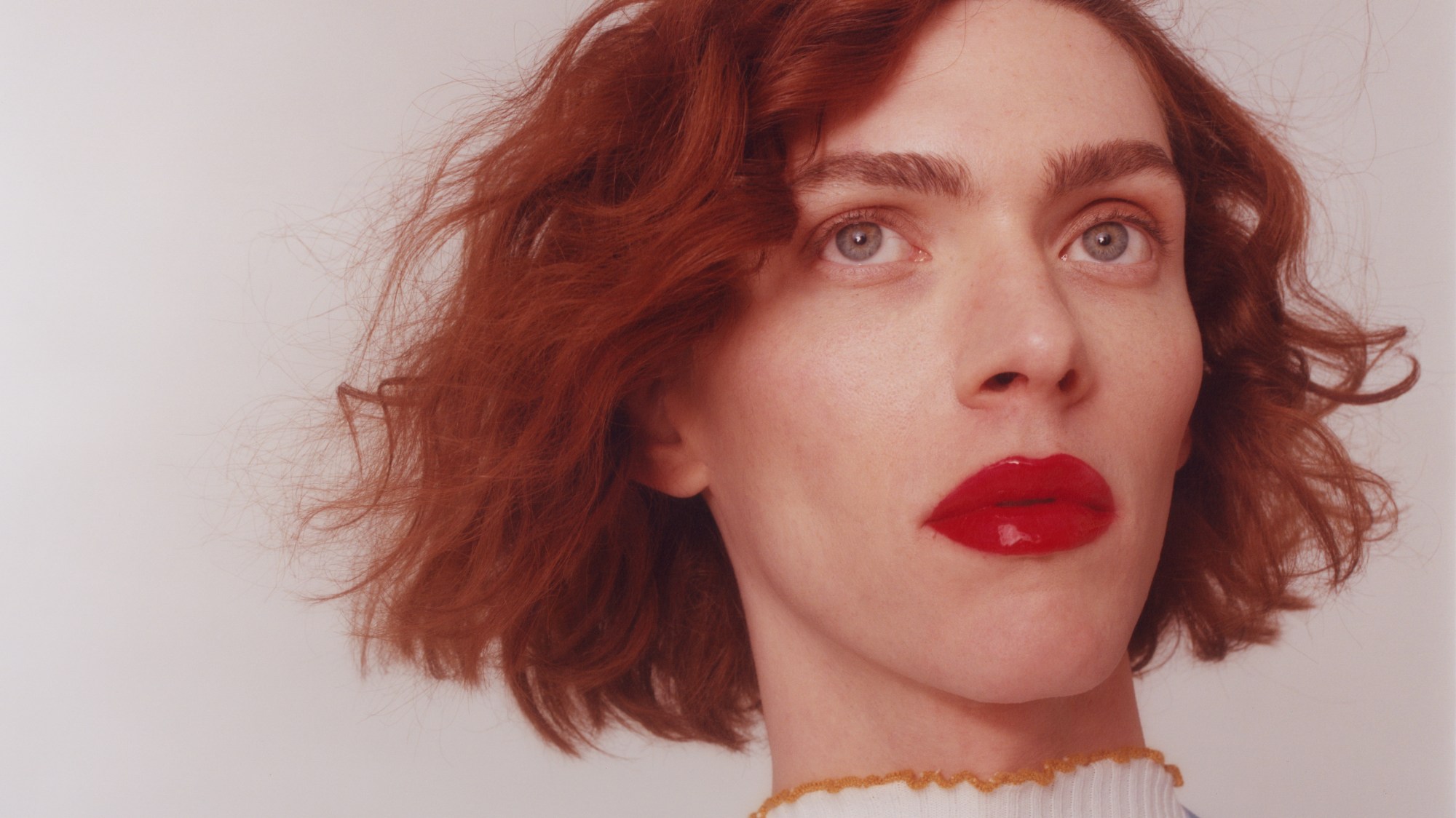We are incredibly saddened to hear the news of SOPHIE’s passing. Back in summer 2018, we had the chance to discuss the artist’s groundbreaking work. This article originally appeared in i-D’s The New Fashion Rebels Issue, no. 352, Summer 2018.
“It’s not supposed to make you feel good, it’s just supposed to make you feel,” one kid, no older than 16, shouts into a friend’s ear. It’s about 11pm on a Tuesday at gay club Heaven, and Sophie’s first performance in London since her return is drawing to a close. The stage is empty and mechanical, unthinking noises and lasers have filled the room for the last 10 minutes, but the energy emitting from the audience isn’t close to dropping. The crowd is made up of young, gender-fluid dressed-up kids with elaborate make-up, big grins and dilated pupils. A club synonymous with a different era of gay nightlife vivified by a new, queer genesis. When Sophie returns to the stage to finish her set with affecting new power ballad It’s Okay to Cry, exhilaration begets emotion and the mood crescendos to a triumphant, visceral close.
A week later Sophie is arched awkwardly over a chair at the back of the Hackney Picturehouse café, wearing a puffa jacket, pink jeans and bright pink lipstick. “Anything musically you do should provoke something,” she says, on mention of feeling vs. feeling good. “I’ve always tried to measure what I put out by whether it elicits a response. Often in my career it’s elicited a negative response, but I think that’s fine as well.” Having dismissed the first question — “Did you enjoy the performance?” — as the least relevant thing about the show, Sophie is more enthusiastic talking about the crowd instead. “That’s really the audience I’m interested in communicating with — not ‘only’, but definitely the main focus of my interests. Playing to a crowd who are so free of inhibitions, wanting to have experiences that can actually change something fundamental in the way that people want to live.”
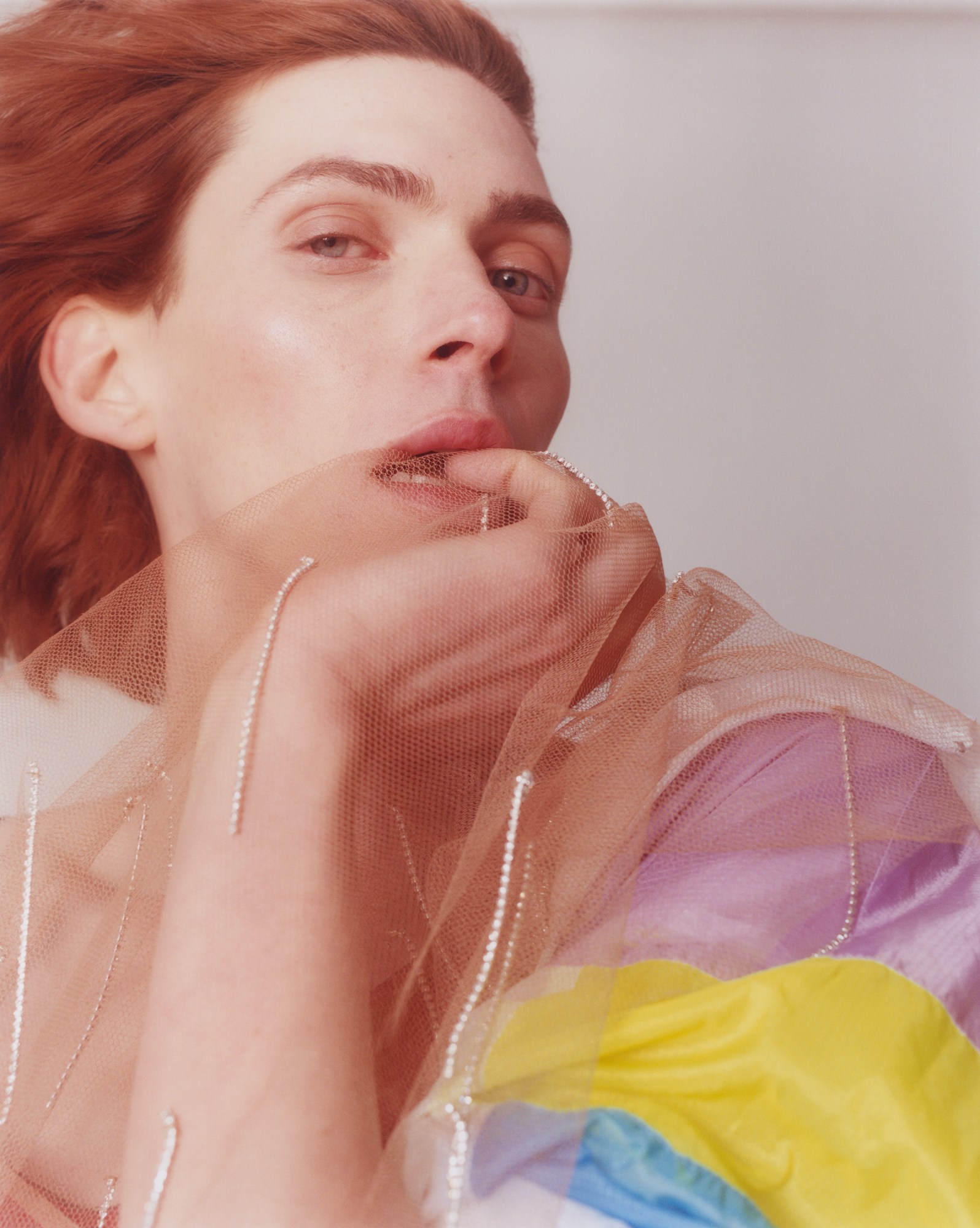
Sophie emerged about five years ago, as an affiliate and friend of the label PC Music and its founder A.G. Cook. Much of the “negative response” she mentioned can be attributed to the divisive reaction this music garnered. “PC Music: the future of pop or ‘contemptuous parody’?” The Guardian asked in May 2015. “Is it time to pull the plug on PC Music?” VICE asked a year later. Creators of synthetic pastiches of internet culture, capitalism and consumerism, the hyperactive, distorted sound quickly grew in infamy and, by the time they broke into the mainstream, at front and centre was PRODUCT — Sophie’s debut compilation album. “I felt really excited about PC Music mostly because they were all friends of mine. They were the first people I really connected with who made music. I was excited to be part of something that felt like a breakaway from this constant recycling of dance music genres that was going on at the time.”
“There were so many women involved in PC Music, and it was a really collaborative atmosphere. It didn’t have the macho feel of a lot of the dance music that I was experiencing at that time.”
Love it or hate it, in eight short songs Sophie helped spark a seismic shift in chart music: pop culture processed through underground sounds, with gender equality at its core. “There were so many women involved in PC Music, it was a really collaborative atmosphere. It didn’t have the macho feel of a lot of stuff I was experiencing at that time.” Throughout this period, Sophie remained closely guarded about her own identity. Interviews were rare and social media interactions few. What little coverage there was attributed different gender pronouns to Sophie, evidence of how little was known and understood about her as a person. The confusion at this point remains a topic Sophie isn’t interested in discussing, but since returning late last year with new solo music, she has explored fresh ground, using her own vocals, appearing in her own videos and singing live on stage.
“I think the only way you can judge things is by what feels good to you, and not forced, and right now it feels natural to me to do this stuff — to be in the spotlight,” she says, beating her coffee spoon rapidly on the table, before dropping it and apologising. This tension between being a performer and a private person is addressed in two of Sophie’s three new releases. “Spit on my face / Put the pony in his place” goes Ponyboy; a fierce, sexually-liberated track accompanied by BDSM-style choreography on stage. “My face is the front of shop / My face is the real shop front / My shop is the face I front / I’m real when I shop my face” — is the motorised refrain of Faceshopping, an obvious contemplation of what true identity really is. “It’s about asking what’s an authentic way of presenting yourself. Is it through the caricature you make of yourself online, through Instagram? Is that really a more honest way of expressing yourself?” The subtext is, very much, no.
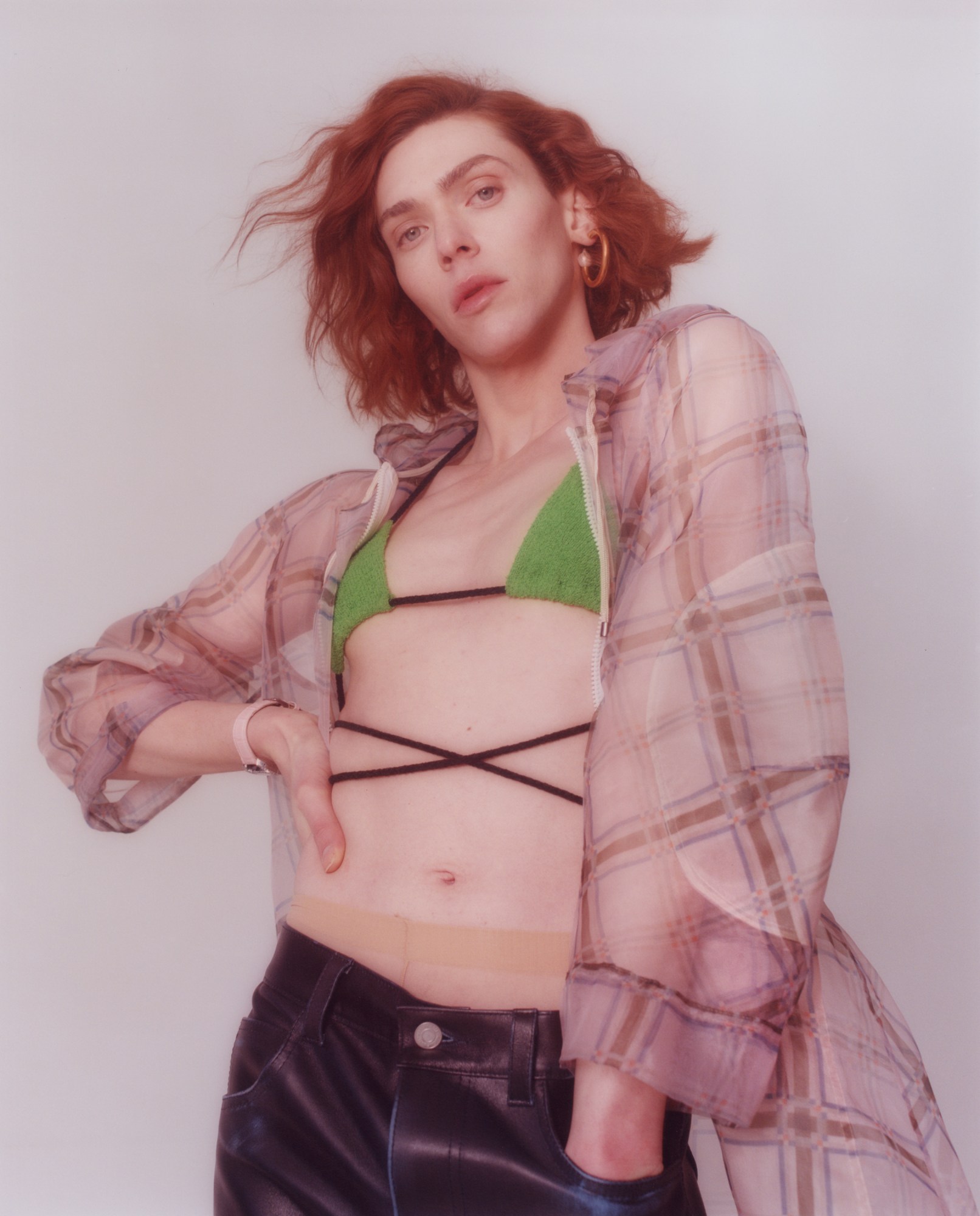
What seems to prevail through Sophie’s artistry is a desire to create a safe, welcoming community among her listeners, something she struggled to find herself when she was younger. “I want to create spaces that would allow for that kind of expression to take place; free, musical, decadent spaces. Not decadent in a material way, but decadent in terms of complete freedom of expression. I was trying to find spaces like that, going to places like Berghain, seeing how they existed, but they were rooted in something that didn’t seem to interact with pop culture in a way that interested me.” The new iteration of her live performance seems to bridge this gap, but Sophie wouldn’t say it was inspired by the queer nightlife of either Berlin or London. “I’ve never really been particularly into karaoke-style performance or a drag race style thing. That’s not an influence on me. I’ve always dreamt of creating some sort of community atmosphere, which is queer, fluid, diverse, genderless, dynamic… I guess I felt like a lot of the culture around club nights in London was very macho when I started doing music. I did want to bring something different, to try and open up a different space for people.” Looking around the room last Tuesday, it seems like she’s achieved just that.
This desire has led Sophie to make Los Angeles her home for the past two and a half years, somewhere she looks forward to returning to soon. “I think there is an openness and acceptance there that I haven’t found as much of elsewhere. My friends in LA, and the community there, are accepting and invested in the conversations. It also just allows me time and space to work, and there are so many people I can be inspired by.” Surrounded by some of the industry’s biggest artists, many of whom she’s working with, it makes total sense. “I just feel good in LA,” Sophie finishes with, peacefully. Not that it’s all about feeling good, as a wise kid once said.
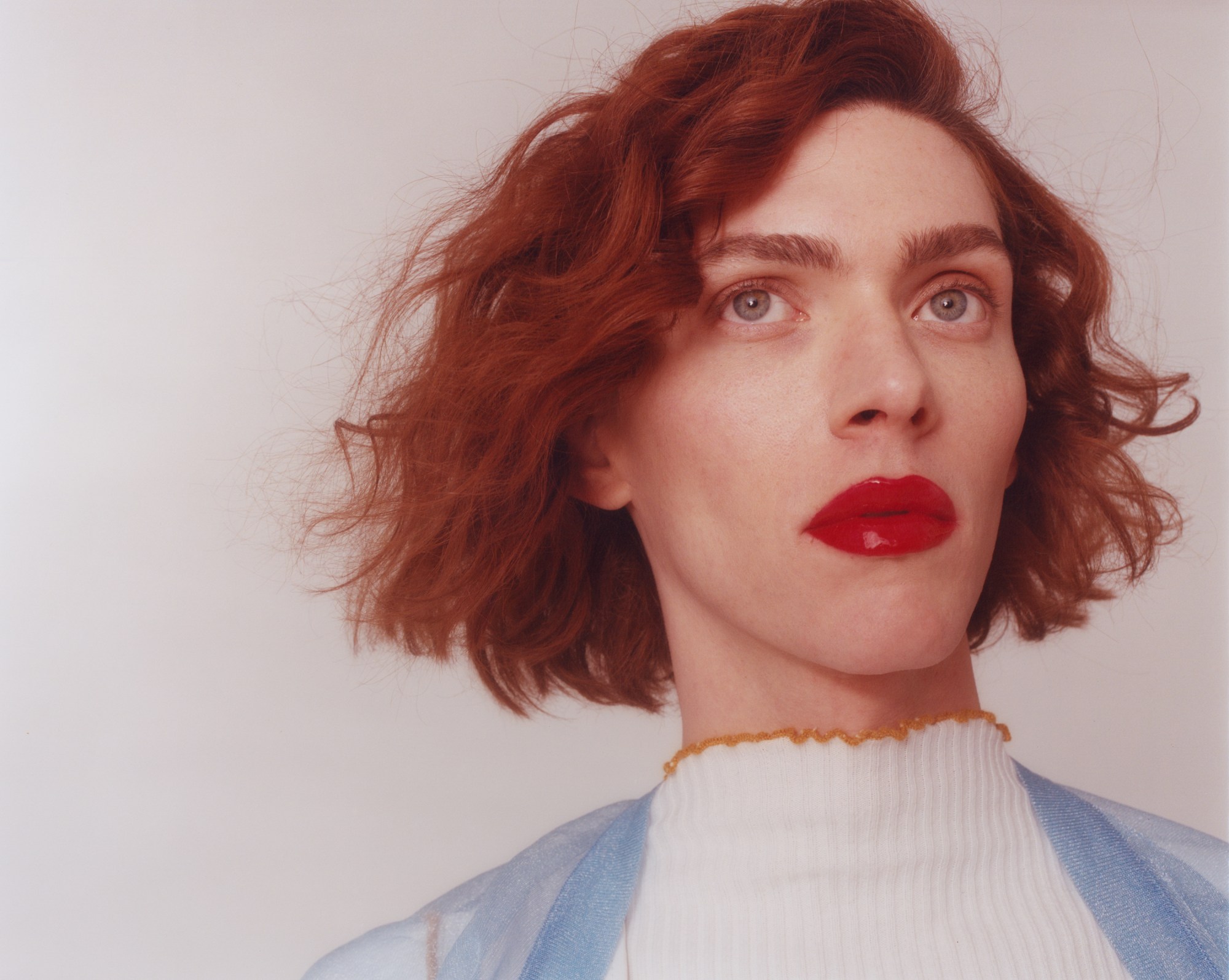
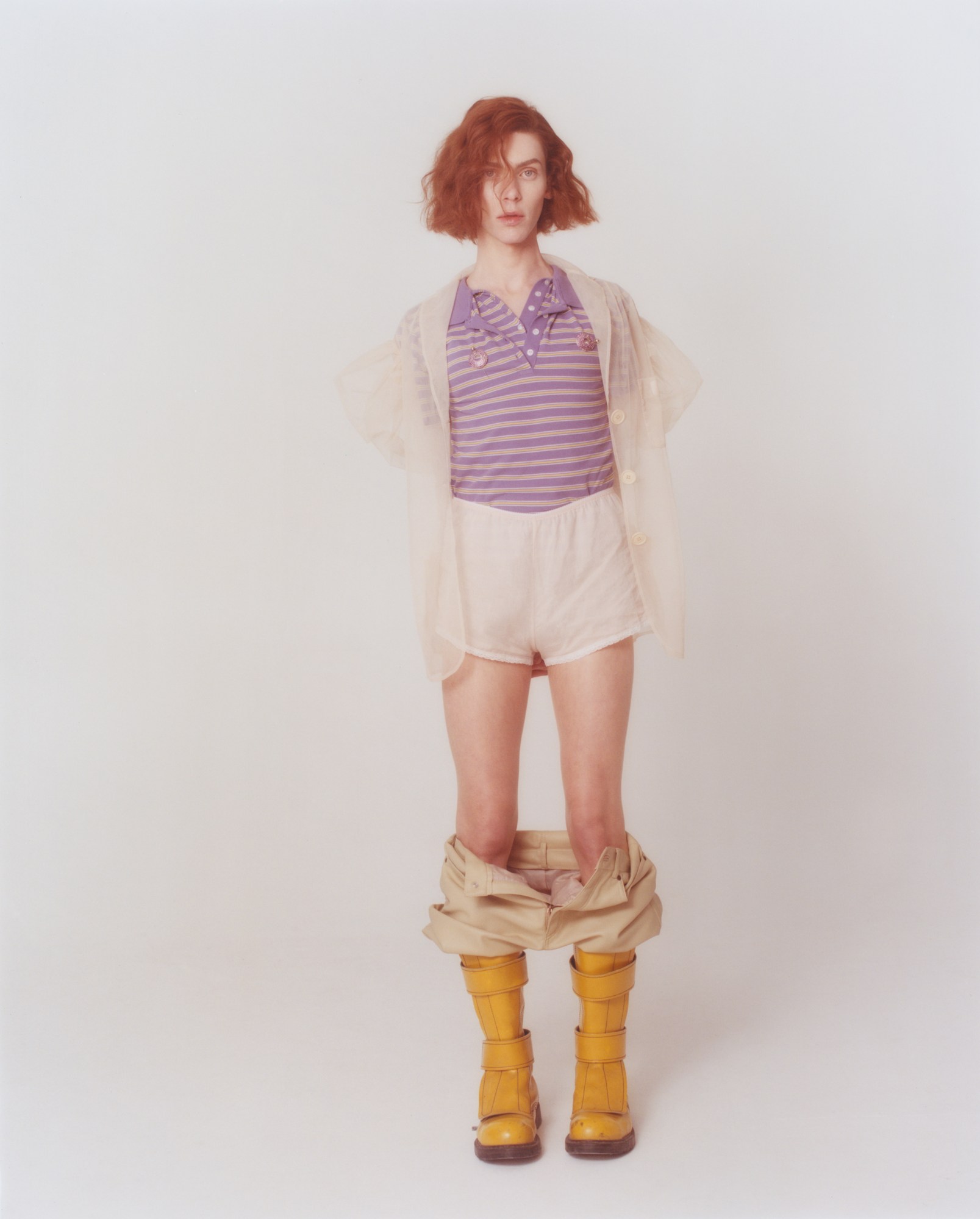
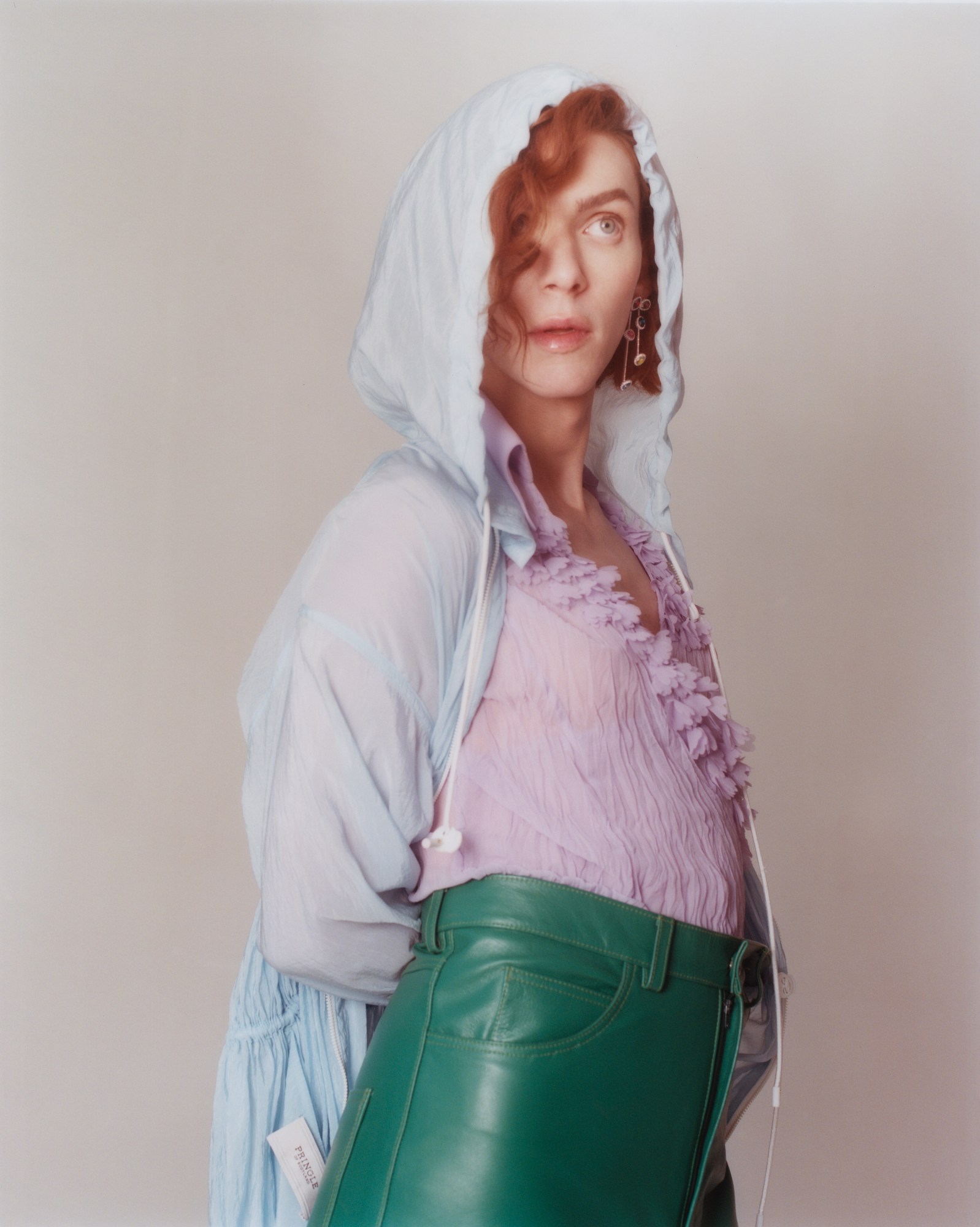
Credits
Photography Lea Colombo
Styling Emilie Kareh
Hair Cyndia Harvey at Streeters. Make-up Niamh Quinn at LGA using Chanel Les Beiges Tinted Moisturiser. Photography assistance David Mannion. Styling assistance Camille Marchand. Hair assistance Blake Henderson. Make-up assistance Libby James.
